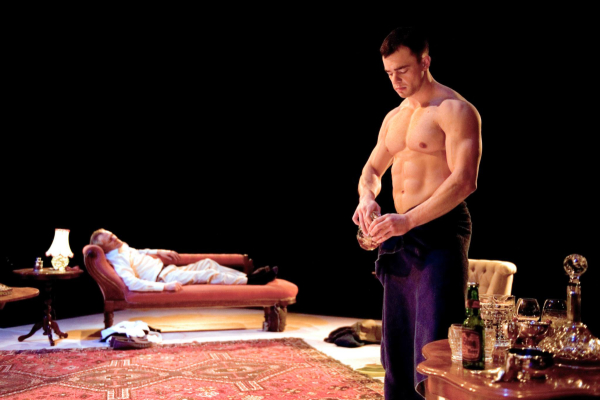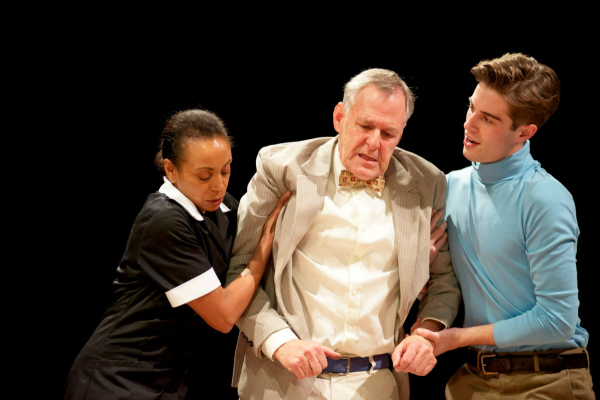Gods and Monsters (Southwark Playhouse) – revealing portrait of James Whale

© Annabel Vere
Dudley-born James Whale is one of the most intriguing of the many interesting figures that created Hollywood's Golden Age. An overnight directing success on the London stage thanks to Journey's End, he went on to become a big screen legend due to Frankenstein, though his personal favourite remained Show Boat.
At his peak he was the Spielberg of his day, but his fall when it came was hard and heavy, culminating in a tragic final chapter in the wake of a stroke he suffered in his mid-60s. It's this period that provides the focus of Gods and Monsters, Russell Labey's new play based on Christopher Bram's biography Father of Frankenstein, which also formed the basis of the Oscar-winning film starring Ian McKellen as Whale.
The central intrigue of Whale's story is his homosexuality, first awakened during a fling with a childhood friend in Dudley – a scene that certainly puts the 'flash' in flashback, as the young Whale (Joey Phillips) writhes naked on the floor with his companion (Will Rastall).
It's one of several reminiscences sparked when the elderly, frail Whale (Ian Gelder) is visited by a young student (Phillips) who comes to interview the old master. Whale's primary motivation for allowing the interview is to see the student in his birthday suit, something he cunningly achieves by persuading him to remove items of clothing in return for answers.

© Annabel Vere
But Whale's real object of desire is beefcake gardener Clayton Boone (Will Austin, making an assured debut), who he persuades to pose for a portrait – art was another of the director's great passions – which Boone naively agrees to in return for cash. It's a relationship that sees them trade war stories – Whale's of his formative romance found against the bloody backdrop of World War One – and discuss those genre-defining movies. But it grows to a dark denouement after Whale has flaunted his new project at a Hollywood party for Princess Margaret (prompting the cheeky quip that Boone has "only met queens").
I won't spoil the climax for the uninitiated, but I can say it sees the muscular gardener revealed in all his glory, providing what seemed to be the major talking point of the night. Which is something of a shame, because as so often with stage nudity it distracts from the central narrative and – although I'm sure most were not complaining – puts the body in central focus as opposed to the character.
Otherwise Labey's production is a detailed study of a fascinating creative force, designed by Jason Denvir on a thrust stage backgrounded by fittingly eerie projections. And whilst it doesn't quite get to the root of Whale's maverick genius, Gelder's performance is a tour de force that stands up well next to McKellen's Oscar-nominated turn.










